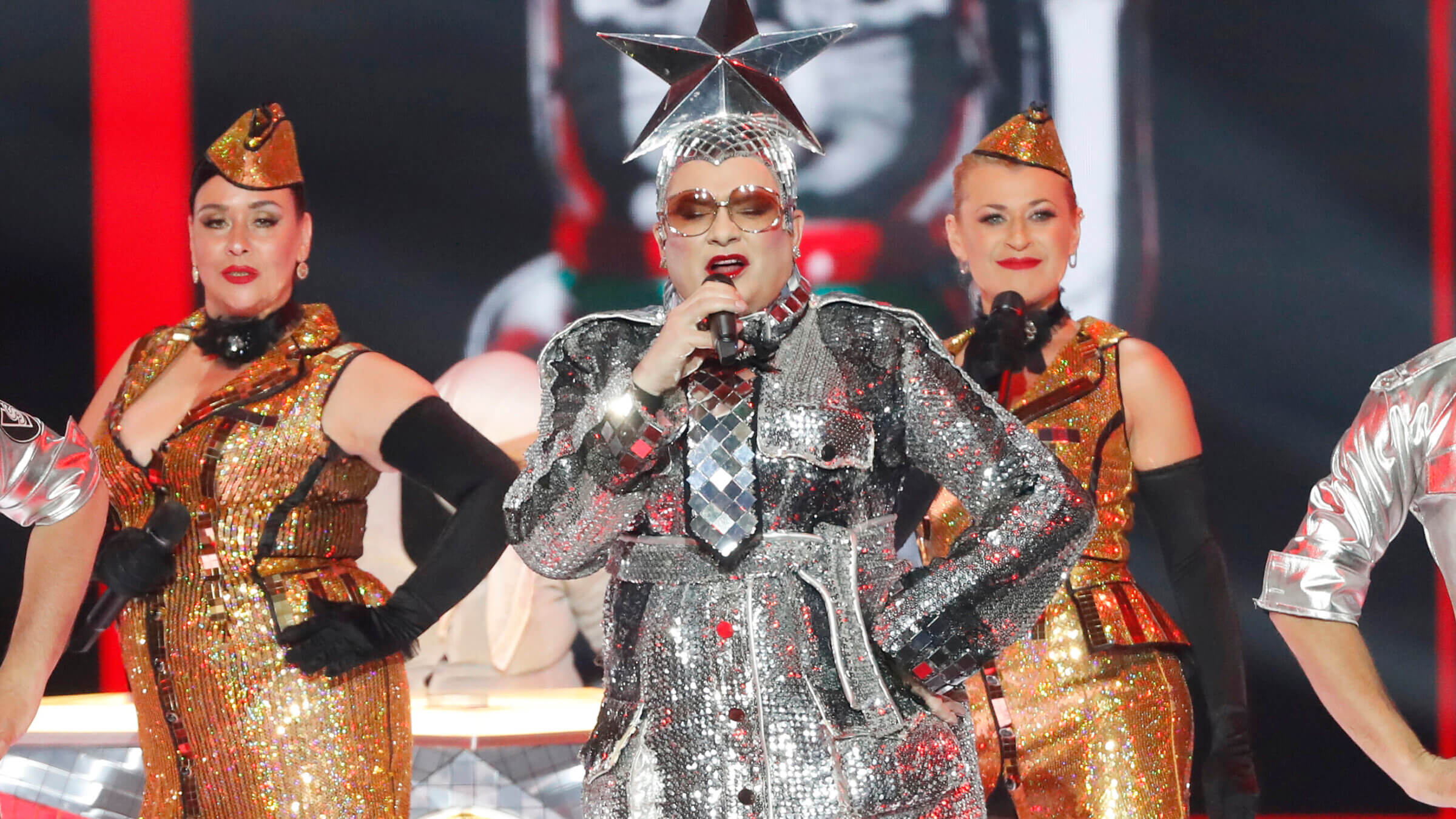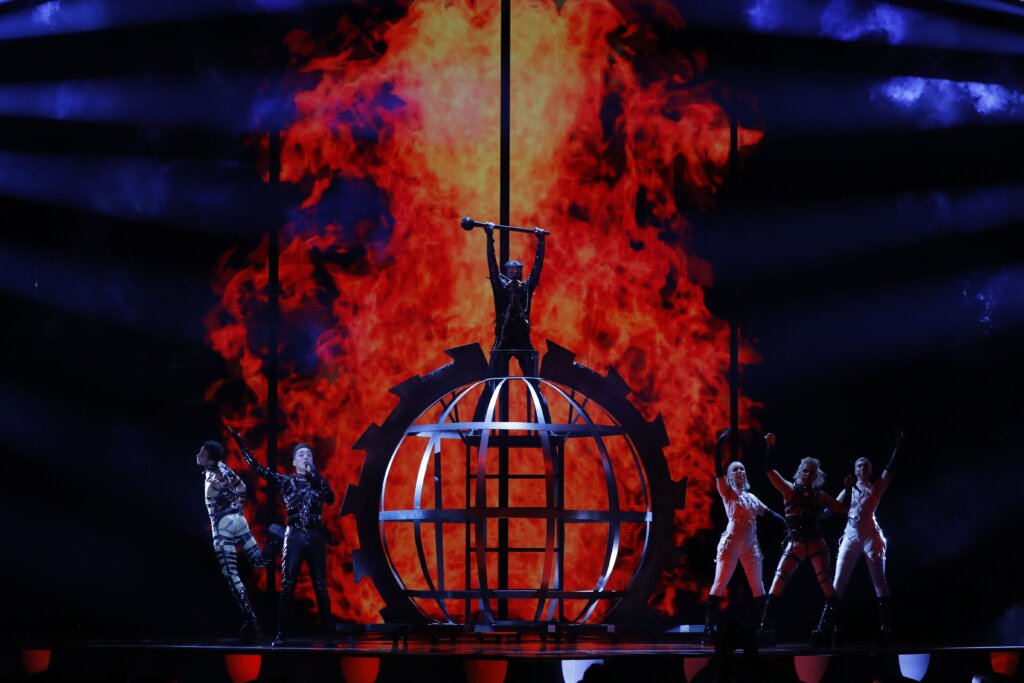Nordic musicians want Eurovision to ban Israel, as a Palestinian vies to enter
Israel has done well in Eurovision historically — but oddsmakers are betting against it this year

A classic Eurovision costume during its 2019 competition in Israel. Courtesy of Getty Images
Israel has done well in Eurovision, the European music contest known for its over-the-top costumes, saccharine pop songs and stage shows featuring latex and fire. 1980s club music icon Ofra Haza’s career was launched by her second-place finish in the 1983 contest and in 2018, Netta Barzilai won with the earworm “Toy,” which garnered a record-setting score. Israel holds the records for most wins without ever placing last (though it’s come close), and has garnered many second- and third-place finishes since it began participating in 1973.
But in advance of this year’s competition, which will take place in Malmö, Sweden, a group of 1,000 Swedish musicians published an open letter asking for Israel to be excluded based on its “brutal” campaign in Gaza.
Describing the competition as a “peace project,” the artists wrote that allowing Israel to participate “sends the signal that governments can commit war crimes without consequences.”
Internationally famous performers such as Robyn, who has sold out Madison Square Garden, signed the letter, which echoed earlier requests from musicians in Finland and Iceland to ban Israel from the 2024 contest.
A spokesperson for Eurovision, in a statement to Billboard, indicated it was unlikely the competition would ban Israel, saying the leadership was “committed to ensuring the Eurovision Song Contest remains a non-political event” and emphasizing its focus on artists, not governments.
But Eurovision is, in fact, political; in 2022, Russia was banned from the competition due to its invasion of Ukraine. Ukraine won the contest that year, a strong statement of cultural support for the besieged country by the voters.
Politics have long been a feature of the Eurovision Song Contest, in part because of the cultural capital a well-received performance can confer. Artists who have done well in the annual competition, such as ABBA — they won in 1974 with “Waterloo” — have gone on to become major acts, providing soft power for their home countries. Though Eurovision began as a contest between a handful of Western European nations, the contest has expanded considerably since, with non-European nations including Australia, Morocco and, yes, Israel competing — not just for musical glory but also for acceptance and legitimacy within the West.
The politics also go beyond just goodwill. Though Eurovision rules officially ban political content in acts, political stunts still often appear. The winning 2016 song from Ukraine, “1944,” referenced Stalin’s deportation of the Tartar people. A song from Georgia was disqualified for a play on words; the line “we don’t wanna put in” was ruled too close to “we don’t want Putin.” In 2015, Armenia’s submission from a group called Geneology commemorated the Armenian genocide — an event other participating countries, such as Azerbaijan, deny occurred.
And then there’s the voting, a mix of a panel of judges and a popular vote, which often feels political. Alliances between the “Nordic bloc,” for example, drive suspicion that countries are scheming to throw the voting.

This year, Iceland is considering boycotting the competition over its decision to allow Israel to participate; they will decide in mid-March, after its contestant for 2024 is picked in a local competition. The country’s musicians have previously spoken out against Israel’s presence in the Palestinian territories, and in 2019, when the contest was held in Tel Aviv, Icelandic punk band Hatari held up Palestinian flags during the final. (They were fined for the incident.)
Though still scheduled to compete in the 2024 contest, Israel may not fare well in competition. Oddsmakers are not rating them highly — which certainly feels political, given that their song submission has not yet been chosen.
Iceland, meanwhile — if it decides to compete — may have a chance at ranking toward the top. Palestinian singer Bashar Murad, who is based in Jerusalem and regularly references Israeli occupation in his music, is competing to represent the country in 2024. If Iceland chooses him, the same politics working against Israel may carry them to victory.






















